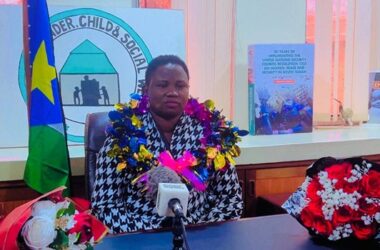By Kei Emmanuel Duku
Smallholder farmers in South Sudan are set to benefit from a $30 million grant from the World Bank.
The grant is to support good agricultural practices, agroforestry, and natural resource management skills of farmers, fisher folks, and livestock herders.
An estimated 140,000 households including 98,000 host communities affected by floods, 40,000 returnees, and 5,000 refugees are set to benefit from the project.
The three-year project will be implemented jointly between the Food and Agricultural Organization and the Ministry of Agriculture and Food Security.
According to data on the United Nations FAO website, the project aims to help farmers adapt to climate-smart technologies, improve agricultural production, reduce deforestation through the introduction of fuel-efficient ovens, and provide post-harvest support for fish processing and handling.
It further aims to support rainfed rice cultivation in flood-affected areas and help farmers build climate resilience in the face of recurring floods and other extreme weather-related hazards.
During the project implementation, farmers will be provided with seeds, pesticides, fertilizers, and agricultural inputs to help them cope with the adverse effects of Climate change and allow farmers to have plenty of crops to harvest as the country continues to experience the impact of Climate Change.
South Sudan has suffered a series of floods consecutively in the last four years which has destroyed farmlands and livestock causing food insecurity.
Currently, some parts of the country have started experiencing floods and it is estimated that by September 2024, between 600,000 and 3.3 million South Sudanese are expected to be affected by floods.
“This contribution is crucial to boost smallholder farmers’ resilience to increasing climate shocks and to minimize damage to farmer’s crops, livestock and source of livelihoods. We need to act before extreme events happen, rather than responding to disasters after they occur,” said FAO Deputy Director-General Beth Bechdol.
“Agriculture is particularly vulnerable to these climate shocks, and where 90 per cent of the population are relying on farming, herding, and fishing for their livelihoods, investing in safeguarding crops, livestock, and inputs is of utmost importance.”
South Sudan is estimated to have more than 7 million people experiencing high levels of acute food insecurity as of April to July 2024 according to the Integrated Food Security Phase 3 and above Classification. The report also noted that the situation is expected to get worse due to the looming floods and the influx of returnees and refugees fleeing the conflict in Sudan.




